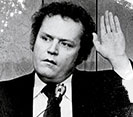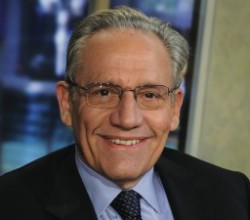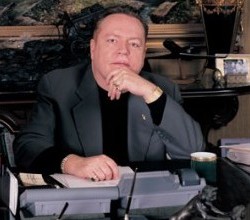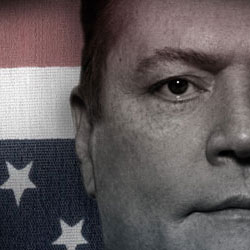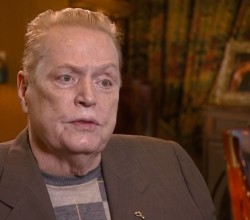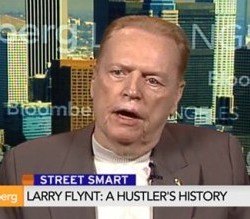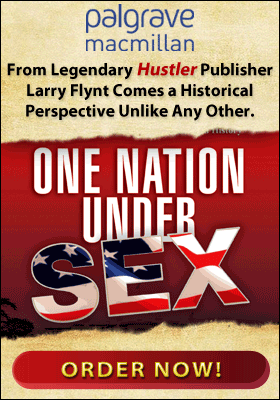High Treason

HOW OUR COUNTRY WAS BETRAYED BY THREE PRESIDENTS
by Bob Fitrakis and Harvey Wasserman for HUSTLER Magazine
The not-so-slow death of our nation by betrayal, bankruptcy and despair has not happened by accident. Three treasonous backstabs by Republicans Richard Nixon, Ronald Reagan (in cahoots with George H.W. Bush) and George W. Bush have poisoned our body politic and bled us into chaos. The first act of treason came in 1968 as the Vietnam War reached a critical turning point. Democratic President Lyndon Baines Johnson was desperate for a truce between North and South Vietnam. His Vice President, Hubert Humphrey, was in a tight Presidential race against Richard Nixon. With demonstrators in the streets, Humphrey needed a cease-fire to get himself into the White House.
Johnson had it all but wrapped up. With a combination of gentle and iron-fisted persuasion, he forced the leaders of South Vietnam into an all-but-final agreement with the North. A truce was imminent, and Humphrey’s election seemed assured. But at the last minute the South Vietnamese pulled out.
In his 1983 book The Price of Power, Seymour Hersh revealed that Henry Kissinger—then LBJ’s adviser on Vietnam peace talks—secretly alerted Nixon’s staff that a cease-fire was looming. According to Hersh, Nixon “was able to get a series of messages to the [President Nguyen Van] Thieu government, making it clear that a Nixon presidency would have different [more favorable] views on the peace negotiations,” hence South Vietnam’s abrupt withdrawal from the Paris peace talks.
Johnson was livid. He even called the Republican Senate Minority Leader, Everett Dirksen, to complain that “they oughtn’t be doing this. This is treason.” “I know,” Dirksen feebly replied.
Johnson blasted Nixon about this on November 3, 1968, just prior to Election Day. As Robert Parry of ConsortiumNews.com has written, “When Johnson confronted Nixon with evidence of the peace-talk sabotage, Nixon insisted on his innocence but acknowledged that he knew what was at stake.”
Said Nixon: “I would never do anything to encourage…Saigon not to come to the table. … Good God, we’ve got to get them to Paris or you can’t have peace.”
With the war still raging, Nixon claimed a narrow victory over Humphrey. He then named Kissinger as his National Security Advisor.
During Nixon’s first term, more than 20,000 U.S. troops died in Vietnam. More than 100,000 were wounded. More than a million Vietnamese were killed. But in 1973, Kissinger was awarded the Nobel Peace Prize for negotiating the same settlement in 1972 he’d helped sabotage four years earlier.
According to Parry, Johnson wanted to go public in 1968 with Nixon’s treason. But Clark Clifford, an architect of the CIA and a pillar of the Washington establishment, dissuaded him. In particular, Clifford told LBJ (in a taped conversation) that “some elements of the story are so shocking in their nature that I’m wondering whether it would be good for the country to disclose the story and then possibly have a certain individual [Nixon] elected. It could cast his whole administration under such doubt that I think it would be inimical to our country’s interests.”
In other words, Clifford told LBJ that the country couldn’t handle the reality that its President was a certifiable traitor eligible for the death penalty. Fittingly, Clifford’s upper-crust career ended in disgrace thanks to his entanglement with the crooked Bank of Credit and Commerce, which financed the terrorist group al-Qaeda.
Tormented by the disastrous war that destroyed his Presidency, Johnson died just four years after leaving the White House. Nixon was reelected in 1972, again with a host of dirty dealings, then became the first U.S. President to resign in disgrace. But along the way, Nixon trained a new generation of dirty tricksters that included Dick Cheney, Donald Rumsfeld, Karl Rove, William Casey and George H.W. Bush.
It was this Bush who engineered a second act of treason that put Ronald Reagan into the Oval Office with him as Vice President. What became known as “the October surprise” began in 1979 when Iranian revolutionaries seized the U.S. Embassy in Tehran and took 52 American hostages, holding them deep into this country’s 1980 Presidential campaign. As Election Day neared, incumbent President Jimmy Carter announced he had a deal to bring them home.
Suddenly, however, the deal evaporated. The 52 Americans remained in Iran, and Reagan overcame unfavorable preelection polls to win a landslide victory. “Coincidentally” the hostages were released on January 20, 1981, as Reagan was being sworn in.
Very quickly a wide range of credible sources claimed the GOP had pulled off another game-changing act of treason. Gary Sick, a member of the National Security Council under Presidents Ford and Carter, wrote in the New York Times that the Reagan campaign had illegally interfered with Carter’s negotiations to bring the hostages home.
Sick’s devastating allegations were confirmed by Abholhassan Bani-Sadr, who was elected president of Iran during the hostage crisis. In his book My Turn to Speak: Iran, the Revolution and Secret Deals With the U.S., Bani-Sadr said ex-CIA Director George H.W. Bush and future CIA Director William Casey conspired with Iranian leaders to sabotage President Carter’s attempts to free the hostages.
According to what Bani-Sadr told author Barbara Honegger— a former Reagan-Bush campaign staffer and GOP White House a n a l y s t — t h e Iranians “made a deal with Reagan that the hostages should not be released until after Reagan became President. So then, in return, Reagan would give them arms. We have published documents which show that U.S. arms were shipped, via Israel, in March [1981], about two months after Reagan became President.”
Sergei V. Stepashin, a high-ranking Russian official, made the same claims and—according to reporter Robert Parry—released corroborating files to the U.S. Congress documenting the treason. (It was Parry who broke the Iran-Contra story for Newsweek and the AP.)
Arms dealer and CIA contract employee Richard Brenneke testified that he had flown Reagan’s campaign director, William Casey, to Paris for a series of secret meetings with the Iranians while Carter was also negotiating with them. Brenneke said Casey did the deal to keep the hostages captive until Reagan was sworn in.
Brenneke’s assertions were tested in court when he was found not guilty after being charged with perjury. Jury foreman Mark Kristoff said in an interview, “We were convinced that, yes, there was a meeting, and he [Brenneke] was there, and the other people listed in the indictment were there. … There never was a guilty vote. … It was 100%.”
Ari Ben-Menashe, purportedly an Israeli intelligence agent, swore under oath before Congress that he saw Bush in Paris over the weekend of October 18-19, 1980. Ben- Menashe told Congress that Bush and Casey were in a hotel and headed into negotiations with radical Iranian cleric Mehdi Karroubi. Parry points out in his book Trick or Treason that the late Yasser Arafat—head of the Palestine Liberation Organization—disclosed to President Carter that Republicans seeking help in arranging the logistics of the October surprise arms-for-hostages deal had contacted the PLO in 1980. Alexandre de Marenches, former chief of French intelligence, confided to his biographer that the French secret service had aided Casey in meeting with the Iranians in Paris in 1980.
It is legally treasonous for private citizens to interfere with official negotiations between the U.S. government and a foreign power. Thus, Reagan’s sabotage of Carter’s attempts to bring the embassy hostages home from Tehran—like Nixon’s sabotage of LBJ’s Vietnam peace talks—clearly qualifies as a capital crime.
George W. Bush threw his hat in the ring of “aiding and abetting the enemy” by illegally outing a covert CIA agent in 2003. The felony came as part of the cover-up of the lies he’d employed to suck America into an illegal war.
In the wake of the terror attacks of September 11, 2001, Bush declared he would bring al-Qaeda leader Osama bin Laden to justice. Not long after that, however, Bush all but abandoned the search for Bin Laden. Instead, he told the American public, war was needed to rid Iraq’s U.S.-sponsored dictator, Saddam Hussein, of “weapons of mass destruction.”
Hussein had nothing to do with the 9/11 attacks. In fact, he was Bin Laden’s sworn enemy. Former Secretary of Defense Donald Rumsfeld has since confirmed that Bush knew full well Hussein had no such WMDs. In his recent autobiography, Rumsfeld reveals that Bush’s real reason for going after the Iraqi dictator was to settle a deep psychological score with his father, George H.W. Bush.
Among other things, the younger Bush ordered Secretary of State Colin Powell to lay out before the United Nations a series of blatant falsehoods meant to win support for a U.S. invasion of Iraq. The key lie was a fabricated scenario in which Hussein supposedly tried to obtain uranium for nuclear weapons from an African country. As Bush put it in his infamous 2003 State of the Union address: “The British government has learned that Saddam Hussein recently sought significant quantities of uranium from Africa.”
That White House lie led to a horrific war that has cost the lives of thousands of Americans and hundreds of thousands of Iraqis—not to mention a trillion or more U.S. dollars. The lie was accompanied by an impeachable felony—a blatantly illegal betrayal of a CIA agent.
On July 6, 2003—almost six months after Bush’s deceitful State of the Union address— former ambassador Joseph C. Wilson IV wrote a New York Times op-ed refuting Bush’s cover story for the Iraq War. In “What I Didn’t Find in Africa,” Wilson—who had been sent to Niger by the CIA to investigate the supposed British claims—said he had “little choice but to conclude that some of the intelligence related to Iraq’s nuclear weapons program was twisted to exaggerate the Iraqi threat.”
Wilson contradicted Bush’s claim that Hussein had obtained yellowcake uranium from Niger to build a radioactive weapon. As Wilson put it, “Selling uranium would require the approval of the minister of mines, the prime minister and probably the president. In short, there’s simply too much oversight over too small an industry for a sale to have transpired.” To cover the lie he had told to get the United States into war, Bush decided to discredit and destabilize Wilson—by putting the life of the diplomat’s wife, covert CIA officer Valerie Plame, in jeopardy. But as stipulated by the Intelligence Identities Protection Act of 1982 (passed while Bush’s father was Vice President), it is a felony to identify an undercover CIA agent.
The law reads in part that “whoever, having or having had authorized access to classified information that identifies a covert agent, intentionally discloses any information identifying such covert agent to any individual not authorized to receive classified information, knowing that the information disclosed so identifies such covert agent…shall be…imprisoned not more than ten years.” George H.W. Bush himself stated that any American revealing such info would be committing treason.
After Wilson’s op-ed appeared, senior White House adviser Karl Rove indirectly confirmed for syndicated Washington Post columnist Robert Novak that Plame was a CIA agent. On July 11, Rove did the same for Time magazine’s Matthew Cooper, according to the reporter’s subsequent grand jury testimony. Cooper had previously confirmed hearing about Plame from Vice President Dick Cheney’s chief of staff, I. Lewis “Scooter” Libby, but that Libby hadn’t mentioned her by name.
In his July 14, 2003, column titled “Mission to Niger,” Novak denounced Ambassador Wilson’s claim that the Bush Administration was manipulating data to sell an unjust war. Novak wrote: “Wilson never worked for the CIA, but his wife, Valerie Plame, is an Agency operative on weapons of mass destruction.”
Meanwhile, White House Press Secretary Scott McClellan denied that Rove was Novak’s anonymous source. Following an FBI investigation and a grand jury hearing, Libby was convicted of obstruction of justice, making false statements and two counts of perjury. Neither Libby nor Rove was ever indicted for disclosing Plame’s status as a covert CIA agent to Novak. Cheney later publicly excoriated Bush for not protecting Libby. And in 2008 McClellan toured the nation with his tell-all book What Happened , charging that Bush had authorized the unmasking of Plame’s identity. McClellan told CNN that Cheney should be forced to testify under oath about the Plame leak.
In his book Daybreak, David Swanson writes that Special Counsel Patrick Fitzgerald, who prosecuted Libby, had direct evidence—including a handwritten note by Cheney—that both the President and Vice President were involved in the Plame scandal. According to Swanson, Bush’s commutation of Libby’s sentence “directly interfered with the Special Counsel’s ongoing investigation of Plame’s ‘outing’ and therefore constituted obstruction of justice.”
In all, George W. Bush lied to America and the world about weapons of mass destruction he knew were nonexistent. He then feloniously outed a CIA agent, putting her life and the lives of other intelligence agents at risk, an impeachable crime. Next, he abused his Presidential power by covering it all up, another impeachable offense.
Does this constitute treason? If it doesn’t, what does?
Despite knowing about Richard M. Nixon’s 1968 act of treason, Lyndon B. Johnson chose to remain silent. Although the realities of 1980’s October surprise have been widely published, Jimmy Carter has said nothing, and Bill Clinton took no action while he was President. Now Barack Obama has refused to prosecute George W. Bush and his henchmen Cheney and Rove for Plamegate and their treasonous crimes in Iraq. Through it all the United States has been transformed from the world’s most prosperous country to the most debt-ridden. From a nation built on hopeful democratic ideals to one dominated by large corporations that care about nothing but power and profit.
What it will take to reverse the damage remains to be seen—if indeed it’s even possible. But a good start would be to charge those who committed the acts of treason that made this nightmare happen.
——————————–
Ohio-based investigative reporters Bob Fitrakis and Harvey Wasserman, who write columns for FreePress.org, have coauthored a number of books on the George W. Bush era and election theft. For more, visit Fitrakis.org and HarveyWasserman.com.

